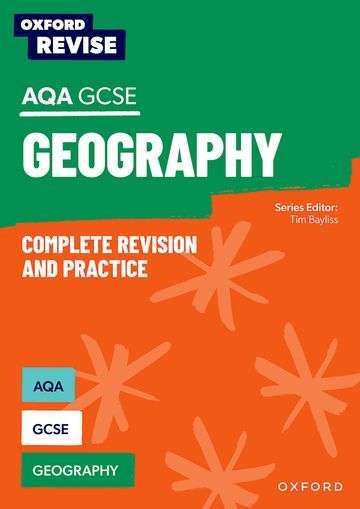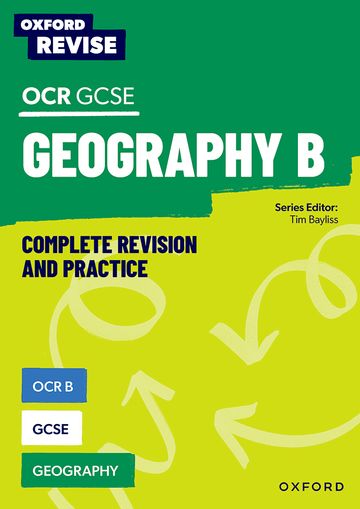Top Tips for Geography Revision by Tim Bayliss
Oxford Revise Series Editor Tim Bayliss and the Oxford Revise Team discuss 6 top tips for effective Geography revision.
For successful revision I want my students to think positively and believe that they can do it! Putting the time into your revision is going to help you to feel confident and ready. GCSEs are a culmination of many years of study at school, so it’s worth putting the work in as you approach your exams.
Tip 1 – Where to revise
Find somewhere quiet without distractions so that you can concentrate. This could be at home, in a library, at a space in your school or perhaps a park or garden. Revision doesn’t all have to be quiet and on your own though. Sometimes you might find it useful to revise with a friend or family member.
Study groups with friends are good for discussing key topics, testing each other using the Retrieval Questions in Oxford Revise guides, and identifying things you don’t understand to then ask your teacher about.
Tip 2 – Dealing with distractions
It’s much better to do a shorter revision session where you are able to really focus and concentrate, than a longer one where you get distracted. The biggest distraction culprit can be your phone. If you find you are getting side-tracked, leave your phone in another room. You can check it during your regular breaks.
Tip 3 – Improve your long-term memory
66% of material is lost within seven days if it is not reviewed again, and 88% is gone after six weeks! Your revision sessions need to combat this forgetting curve, so give your brain a workout and make sure information gets locked into your long-term memory. Some tips for doing this include regularly going back over topics to keep practising retrieving prior knowledge. For example, if you are doing a revision session on water management, start with quickly recalling energy management first. Oxford Revise will help you with this. Retrieval sections in your Geography Revision Guide make sure you are going over previous topics, so your brain gets used to retrieving information across lots of different parts of the specification.
Tip 4 – Know your case studies
It’s important to really know your case studies; help that knowledge go into your long-term memory by regularly going over key information. You could stick Post-It notes onto the fridge with key information on, or challenge yourself to recall 5 pieces of information before getting on the bus.
Tip 5 – Know your command words
One of the biggest exam pitfalls is misunderstanding command words. Check you really understand what they are asking you to do. Use the exam-style practice questions in Oxford Revise to give yourself lots of practice of the type of questions you will encounter in the exams – there are lots of useful tips on command words and suggestions for how to answer them.
Tip 6 – Think SLOP (Shed loads of practice)!
Remember – exam preparation involves giving out information, not just taking it in! Keep your revision as active as possible by using the Retrieval Questions in your Oxford Revise guide. Ask friends or family to test you – the answers are there in the book to make it easy for them. Use the exam-style questions and then as your exams approach try to do as many practice papers as possible, including some against the clock.
Useful links
Revision books

AQA GCSE Geography
Revise and practise everything you need to know for the AQA GCSE Geography exam. You will cover everything from natural hazards and physical processes to climate change and urbanisation.

Edexcel GCSE Geography B
Revise and practise everything you need to do well in the Edexcel GCSE Geography B exam. You will revise how to apply your geographical skills and work through a decision-making exercise.

OCR B GCSE Geography B
Revise and practise everything you need to do well in the OCR B GCSE Geography B exam. You will also cover geographical skills, fieldwork and exploration.